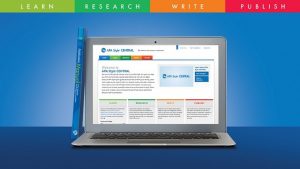There’s still time to get your application package together!
Do you work in an academic or health sciences library in the United States? Are you an early- or mid-career librarian? Are you looking for sources of funding for a conference you’d like to attend this spring?
If the answer to all of those questions is yes, please consider applying for an APA Librarian Conference Travel Award! Through March 31, 2018, we are accepting applications for conferences taking place from May to August 2018. This includes – but is not limited to – LOEX 2018, the Medical Library Association Conference 2018, ALA Annual 2018, the ACRL Immersion Program and Teacher Tracks, and the APA Annual Convention.
The award is intended to help defray conference-related expenses for librarians with less than 15 years of experience after receiving their MLS/MLIS. Three cash awards are distributed three times each calendar year, and the application cycle opens and closes on a rolling basis. At this time, we are not limiting the conferences that are eligible for travel award funding. Applicants should identify the conference that best meets their professional needs, and explain how attendance will support their current duties and future goals.


